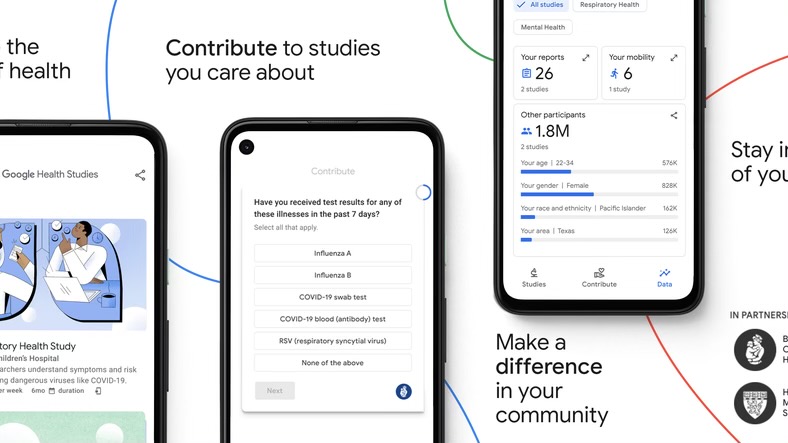Let’s face it, if you’re doing a clinical study recruiting research subjects is a bear. To make it easier, Google today introduced Google Health Studies, a tool to match the potential study participants with researchers. Their new (Android) app provides a platform for researchers to reach a large population for recruitment while giving the public the chance to participate. Kicking off with Boston Children’s on a respiratory study, Google is focused on three principles: keeping information safe, treating it responsibly, and putting participants in control. Under the watchful eye of John Brownstein this is a very interesting development.

Concerning privacy, Google had this to say:
We also give participants transparency and control over their personal information. For each study, participants can clearly see what data is being contributed, and when and why it’s shared. To protect participants’ personal information we adhere to strict privacy policies. Study data will only be used for the purposes that are explicitly consented to in the research study and will not be sold, shared with advertisers, or be used to show participants ads. The Google Health Studies app also makes it easy for participants to understand their contributions to each study, as well as access research findings when they become available.
To further insure privacy, the app will use federated learning a machine learning technique that keeps a person’s data on their own device while aggregating population insights encrypted encrypted updates.
First thoughts on Google Health Studies
- Google Health Studies is an Android only platform. While the restriction at this point to Android may seem like a constraining factor, the median iPhone user earns $85,000 per year, which is 40 percent more than the median Android user. This could serve a distinct advantage in certain populations.
- Connecting researchers with the public is not new. There is a fledgling industry around this already that, in many cases, favors those with coin. For the average academically-driven pediatric study this may represent a more viable solution.
- Geophysical determinants of health. More than just serving as a middleman, researchers can examine trends to understand the link between mobility (such as the number of daily trips a person makes to a bar or restaurant) and the disease in question.
- Google Health Studies is more platform than program. Or website. And consequently I suspect Google is better positioned to do this at scale than any solution that currently exists.
I suspect that confidence will make or break Google Health Studies. If Google and their early Harvard co-branding can earn public trust and buy-in, this is worth watching.